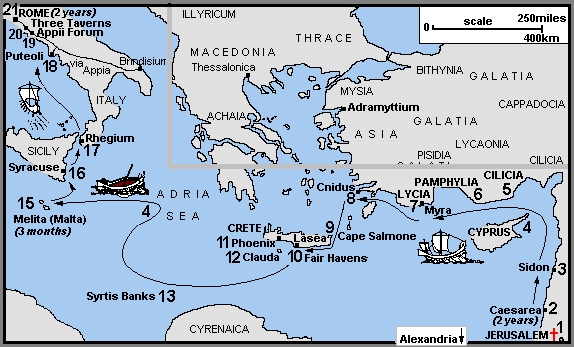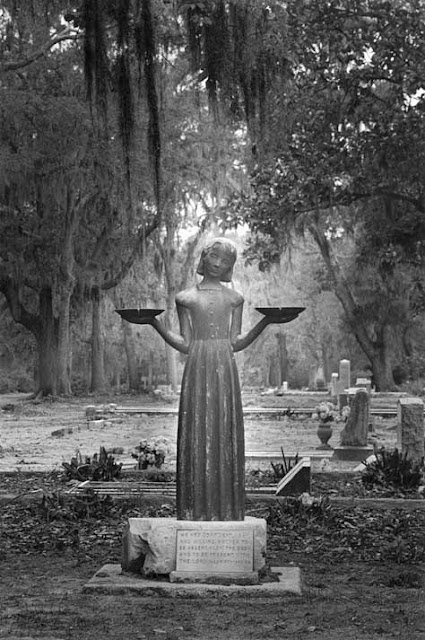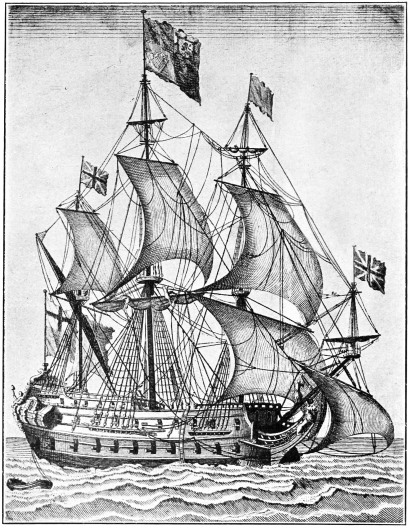 |
William Blake Illustrations_to_Robert_Blair's_The_Grave Friendship |
QUAKERS IN GAINESVILLE
Friday, January 19, 2024
BLAKE & QUAKERS
Friday, September 30, 2022
INNOVATORS
 |
| Marlyn Wescoff and Ruth Lichterman Programming ENIVAC |
Although I lived through early stages of the digital age with avid enthusiasts in my family and on the job using a main frame, I was fascinated by Walter Isaacson's book The Innovators.
I learned many surprising things when I read Isaacson's book. In
it he traces the development of the digital age from its inception
until the year 2014 when the book was published. It all started with a
desire for making difficult calculations simpler and less time
consuming. Mechanical devices offered some success but many small
advances were required before the first electronic computer could be built. In the mid 1930's using vacuum tubes as on/off
switches in electronic circuits sped up processing which had relied on
electromechanical switches. The advances in computing in the 1930's
"came from a combination of capabilities, ideas, and needs that
coincided in multiple places," as Isaacson states.
The military became involved because of the need to make tedious calculations for trajectories for guns after the entry of the United States into World War II in December 1941. In 1943 The U. S. War department decided to fund an electronic computer and the construction of the ENIVAC soon began. Although the Defense Department financed much of the development of early computers and of the internet, the academics and researchers who were were directly involved making technical decisions and doing the work, designed a system for collaboration and research. On page 251 we read, "'Janet Abbate noted ... the group that designed and built ARPA's networks was dominated by academic scientists, who incorporated their own values of collegiality, decentralization of authority, and open exchange of information into the system.' These academic researchers of the late 1960's, many of whom associated with the antiwar counterculture, created a system that resisted centralized command. It would route around any damage from a nuclear attack but also around any attempt to impose control."
A system using personal computers for working alone, along with connectability to a web of other users, took many more steps before individuals had access to data and the ability to interact with one another through electronic devices. The system developed out of the effort of many thinkers and engineers and innovators working together or working in isolation or in groups to invent specific procedures which could be fitted together. It involved a collaborative process which led to unexpected creativity. It depended upon academics, government, businesses and solitary inventors. Computers and networking are built on the work of predecessors who had no inkling of what could follow their innovations.
Although we have been given a toolbox which opens vast possibilities, each of us has a responsibility for using it wisely and circumspectly.
If this post reminds you of your experience with computers please make a comment below. We would be pleased to hear about your initiation, your discoveries, your frustrations, your satisfactions and your hopes.
Tuesday, March 8, 2022
SAILING TO AMERICA
From John Smith’s Sea-Man’s Grammar (1694 edition)
THE JOURNAL OF GEORGE FOX
Edited with an Introduction
and Notes By
Rufus M. Jones
From the 1694 First Edition
CHAPTER XVIII.
Two Years in America.
1671-1673.
"In the afternoon, the wind
serving, I took leave of my wife and other Friends, and went
on board. Before we could sail, there
being two of the King’s frigates riding in the Downs, the captain of one of them sent his
press-master on board us, who took three of our seamen. This
would certainly have delayed, if not
wholly prevented, our voyage, had not the captain of the other frigate, being informed of the
leakiness of our vessel, and the length of our voyage, in compassion and much civility,
spared us two of his own men.
Before this was over, a
custom-house officer came on board to peruse packets and get
fees; so that we were kept from sailing
till about sunset; during which delay a very considerable
number of merchantmen, outward-bound,
were several leagues before us.
Being clear, we set sail in the
evening, and next morning overtook part of that fleet about
the height of Dover. We soon reached
the rest, and in a little time left them all behind; for our
yacht was counted a very swift sailer.
But she was very leaky, so that the seamen and some of the passengers did, for the most
part, pump day and night. One day they observed that in two
hours’ time she sucked in sixteen
inches of water in the well.
When we had been about three
weeks at sea, one afternoon we spied a vessel about four
leagues astern of us. Our master said it
was a Sallee
man-of-war, that seemed to give us chase. He said, “Come, let us go to supper, and
when it grows dark we shall lose him.” This he spoke to please and pacify the passengers, some
of whom began to be very apprehensive of the danger. But Friends were well satisfied in
themselves, having faith in God, and no fear upon their
spirits.
[When the sun was gone down, I saw out of my cabin the ship making towards us. When it grew dark, we altered our course to miss her; but she altered also, and gained upon us.]
[Note - A Moorish pirate ship, named from Sallee, a seaport of Morocco. This incident not only indicates Fox’s simple faith in God but it also is a good illustration of the way in which he inspired confidence in others. The captain believes in him.]
At night the master and others came into my cabin, and asked me what they should do. I told them I was no mariner; and I asked them what they thought was best to do. They said there were but two ways, either to outrun him, or to tack about, and hold the same course we were going before. I told them that if he were a thief, they might be sure he would tack about too; and as for outrunning him, it was to no purpose to talk of that, for they saw he sailed faster than we. They asked me again what they should do, “for,” they said, “if the mariners had taken Paul’s counsel, they had not come to the damage they did.” I answered that it was a trial of faith, and therefore the Lord was to be waited on for counsel.So, retiring in spirit, the Lord showed me that His life and power were placed between us and the ship that pursued us. I told this to the master and the rest, and that the best way was to tack about and steer our right course. I desired them also to put out all their candles but the one they steered by, and to speak to all the passengers to be still and quiet.
About eleven at night the watch called and said they were just upon us. This disquieted some of the passengers. I sat up in my cabin, and, looking through the port-hole, the moon being not quite down, I saw them very near us. I was getting up to go out of the cabin; but remembering the
word of the Lord, that His life and power were placed between us and them, I lay down again.
By this time the moon was quite down. A fresh gale arose, and the Lord hid us from them; we sailed briskly on and saw them no more.
The next day, being the first day of the week, we had a public meeting in the ship, as we usually had on that day throughout the voyage, and the Lord’s presence was greatly among us. I desired the people to remember the mercies of the Lord, who had delivered them; for they might have been all in the Turks’ hands by that time, had not the Lord’s hand saved them."
Acts.27
[1] And when it was determined that we should sail into Italy, they delivered Paul and certain other prisoners unto one named Julius, a centurion of Augustus' band.[2] And entering into a ship of Adramyttium, we launched, meaning to sail by the coasts of Asia; one Aristarchus, a Macedonian of Thessalonica, being with us.
[9] Now when much time was spent, and when sailing was now
dangerous, because the fast was now already past, Paul admonished
them,
[10] And said unto them, Sirs, I perceive that this voyage
will be with hurt and much damage, not only of the lading and
ship, but also of our lives.
[11] Nevertheless the centurion believed the master and the
owner of the ship, more than those things which were spoken by
Paul.
[18] And we being exceedingly tossed with a tempest, the
next day they lightened the ship;
[19] And the third day we cast out with our own hands the
tackling of the ship.
[20] And when neither sun nor stars in many days appeared,
and no small tempest lay on us, all hope that we should be saved
was then taken away.
[21] But after long abstinence Paul stood forth in the
midst of them, and said, Sirs, ye should have hearkened unto me,
and not have loosed from Crete, and to have gained this harm and
loss.
[22] And now I exhort you to be of good cheer: for there
shall be no loss of any man's life among you, but of the ship.
[23] For there stood by me this night the angel of God,
whose I am, and whom I serve,
[24] Saying, Fear not, Paul; thou must be brought before
Caesar: and, lo, God hath given thee all them that sail with thee.
[25] Wherefore, sirs, be of good cheer: for I believe God,
that it shall be even as it was told me.
[41] And falling into a place where two seas met, they ran
the ship aground; and the forepart stuck fast, and remained
unmoveable, but the hinder part was broken with the violence of
the waves.
[42] And the soldiers' counsel was to kill the prisoners,
lest any of them should swim out, and escape.
[43] But the centurion, willing to save Paul, kept them
from their purpose; and commanded that they which could swim
should cast themselves first into the sea, and get to land:
[44] And the rest, some on boards, and some on broken
pieces of the ship. And so it came to pass, that they escaped all
safe to land.
 |
Map in Phillips New Testament Paul's Journey from Caesarea to Rome |
[24] And, behold, there arose a great tempest in the sea, insomuch that the ship was covered with the waves: but he was asleep.
[25] And his disciples came to him, and awoke him, saying, Lord, save us: we perish.
[26] And he saith unto them, Why are ye fearful, O ye of little faith? Then he arose, and rebuked the winds and the sea; and there was a great calm.
Monday, February 14, 2022
GARDEN OF GOOD AND EVIL
 |
Bird Girl Telfair Museum Savannah, GA |
This statue was created by Sylvia Shaw Judson,the sculptor who sculpted the statue of Mary Dyer which appeared in an earlier post. For years the statue was in the Bonaventure Cemetery in Savanna Georgia. It was moved to a safer place after it gained fame through the movie Midnight in the Garden of Good and Evil which was set in Savanna.
 |
| Cover Photo for novel Midnight In the Garden of Good and Evil |
"For Jack Leigh, his iconic moment came in 1994 when he was commissioned by Random House for the cover of John Berendt’s non-fiction novel Midnight in the Garden of Good and Evil. The book was about the repercussions that the murder of a local male prostitute and its subsequent trial that ensued. The titular “the garden of good and evil,” referred to Bonaventure Cemetery in Savannah, Georgia. Bredent suggested to Leigh to go to the cemetery for a suitable subject."
This post would not appear on this blog were it not that Sylvia Shaw Judson became a convinced Quaker in midlife. She was instrumental in beginning the Lake Forest Meeting
In a simple book of pictures and quotations Judson showed how art could evoke a state of mind which encouraged spiritual values. On the website of the Telfair Museum we read:
"In The Quiet Eye: A Way of Looking at Pictures (1982), Judson emphatically connected her Quaker beliefs to her aesthetic practices. She emphasized the term 'divine ordinariness,' which she defined as the 'delicate balance between the outward and the inward, with freshness and a serene wholeness and respect for all simple first-rate things, which are for all times and all people.'
These principles of simplicity, equality, and inwardness may very well have been applied to the work that we have now come to know as the Bird Girl. The young figure, plainly dressed, holds two bowls in either hand, which could be interpreted as a gesture of weighing and balancing. The overall simplicity of the composition, or its 'divine ordinariness,' helps explain its enduring charm; the sculpture reveals very little even after prolonged looking and retains an air of compelling mystery. Originally unassumingly titled 'Fountain Figure' (1936), the sculpture stood anonymously in Bonaventure Cemetery until it was featured on the cover of John Berendt’s bestseller Midnight in the Garden of Good and Evil (1994) and the subsequent Clint Eastwood film (1997)."
The image of the innocent child with arms outstretched, holding two vessels speaks of the choices we are constantly called to make. In the novel that became associated with the picture of the statue, the choice was presented as between good and evil. More often the choice is between self and others, or between following guidance or following the trend, or between truth and falsehood, or between any two things which lead us in opposite directions. The point is that we must choose; indecision is a choice also.
 |
Yale University Art Gallery Grave of William Penn Edward Hicks 1847 |
Saturday, January 8, 2022
MONTEVERDE
Miami Meeting Friend Brad Stocker recently sent email noting that there is a PBS film which gives an account of the founding of the Friends Community in Costa Rica. Brad who occasionally visited the Gainesville Meeting and the Ocala Worship Group said in his email that Monteverde "has had an impact on my teaching, heart, and spiritual path."
The film is made available by Rocky Mountain PBS with the title Home Sweet Monteverde.
Let me know about your experiences with Monteverde.
https://video.rmpbs.org/video/sweet-home-monteverde-dh7gzy/
Friday, December 10, 2021
GOD IN US
.png/548px-Joan_Baez_(1965).png) |
| 1965 |
Joan Baez performing the song God Is God at the Chautauqua Auditorium in Boulder, CO on 7/15/09.
God Is God
Some folks see things not everybody can see.
And, once in a while, they pass the secret along to you and me.
Something sacred burning in every bush and tree.
We can all learn to sing the songs the angels sing.
Stood on mighty mountains and gazed across the wilderness.
Never seen a land with sand or a diamond in the dust.
Every day that passes I'm sure about a little bit less.
And I believe in God, and God in us.
Whether or not I believe doesn't matter at all.
I receive the blessings.
That every day on Earth's another chance to get it right.
Let this little light of mine shine and rage against the night.
Maybe someone's watching and wondering what I got.
Maybe this is why I'm here on Earth, and maybe not.
Sunday, October 24, 2021
ISAAC PENINGTON
"
All truth is a shadow except the last—yet every Truth is true in its
kind. It is substance in its own place, though it be but a shadow in
another place, (for it is but a shadow from an intenser substance;) and
the shadow is a true shadow, as the substance is a true substance."
Thomas Ellwood on Isaac Penington
Hymn by Charles Wesley: Come, O Thou Traveler Unknown




